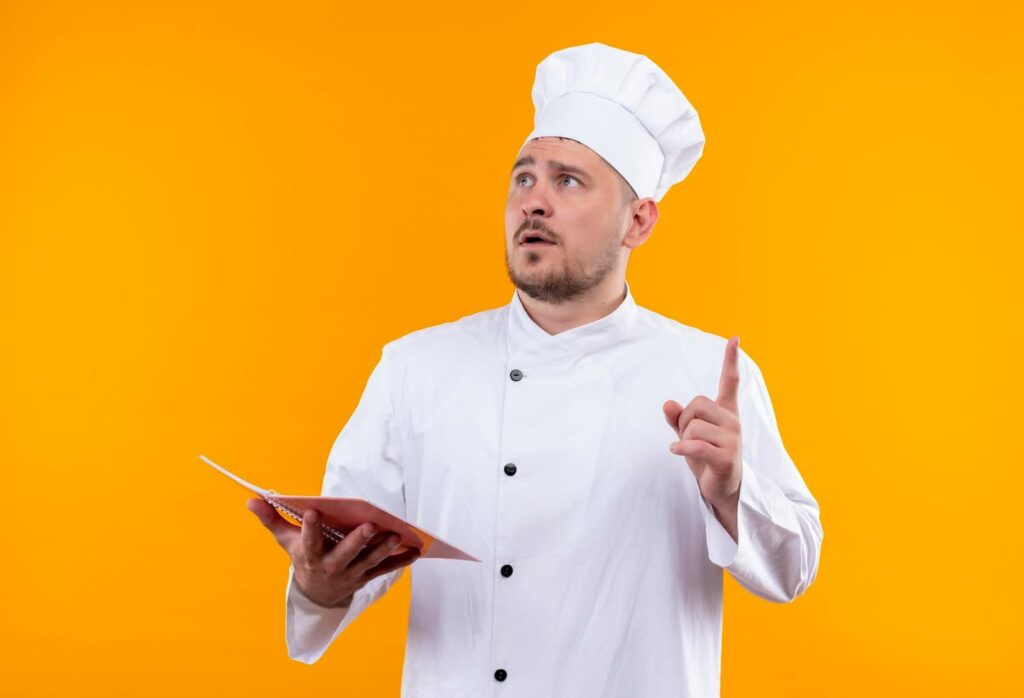Hiring a head or executive chef involves more than just assessing culinary skills. The role of an executive chef extends beyond cooking expertise to encompass leadership, creativity, and business acumen. To ensure you find the right candidate who aligns with your restaurant’s specific needs, crafting a list of chef interview questions is crucial. A well-structured interview will provide insights that go beyond what a resume or cooking test can reveal. Whether you are hiring an executive or head chef, asking the right questions is essential in the screening process.
General Icebreaker Chef Interview Questions
The initial phase of the interview should aim to establish rapport and set a comfortable tone for the conversation. By posing open-ended questions, you encourage candidates to share their experiences freely. It is important to avoid overly personal inquiries or questions that could potentially breach fair hiring practices. Additionally, steer clear of queries that prompt simple yes or no responses.
Sample General Icebreaker Questions:
- Can you tell us about a significant culinary influence in your life that shaped your career?;
- What motivated you to pursue a career in the culinary arts?;
- How do you stay updated with current food trends and innovations in the industry?
Chef Interview Questions to Assess Background and Skill Level
Delving into a candidate’s background and skill set is crucial to understanding their culinary journey and level of expertise. This help evaluate the depth of their experience, training, and proficiency in various culinary techniques.
Sample Background and Skill Assessment Questions:
- Could you walk us through your culinary training and professional experience?;
- What cuisines or cooking styles are you most passionate about and proficient in?;
- How do you handle feedback and criticism in a high-pressure kitchen environment?
List of Skills to Assess:
- Knife Skills;
- Menu Development;
- Food Safety and Sanitation Practices.
Scenario-Based Chef Interview Questions That Show Problem-Solving Skills
Presenting hypothetical scenarios allows you to gauge a candidate’s critical thinking and problem-solving abilities in real-time kitchen situations. These questions provide insight into how they approach challenges and make decisions under pressure.
Sample Scenario-Based Questions:
- If a key ingredient for a signature dish runs out during service, how would you adapt and ensure customer satisfaction?;
- Describe a time when you had to resolve a conflict within your kitchen team;
- How would you manage unexpected delays in food preparation without compromising quality or service standards?
Common Scenarios to Present:
- Equipment Malfunction;
- Staffing Shortages;
- Customer Complaints.

Questions that Uncover the Chef’s Business Savvy
Assessing a chef’s business acumen is vital, especially for leadership roles where strategic decision-making and financial awareness play a significant role in the success of the kitchen and the establishment as a whole. These questions delve into the candidate’s understanding of cost control, menu profitability, and overall kitchen management.
Sample Business-Savvy Questions:
- How do you approach menu pricing to ensure profitability while maintaining quality and customer satisfaction?;
- Can you discuss a successful cost-saving initiative you implemented in a previous kitchen leadership role?;
- What strategies do you employ to keep food costs in check without compromising on ingredient quality?
Key Areas to Explore:
- Budget Management;
- Vendor Relationships;
- Menu Engineering.
Conclusion
In conclusion, conducting thorough interviews with well-designed prompts is essential in identifying the ideal chef for your restaurant. By incorporating a mix of general icebreakers, background assessments, scenario-based inquiries, and business-focused discussions, you can gain a comprehensive understanding of a candidate’s suitability for the role. Remember, finding the perfect chef goes beyond culinary skills; it encompasses leadership qualities, problem-solving abilities, and a strategic approach to kitchen management.
